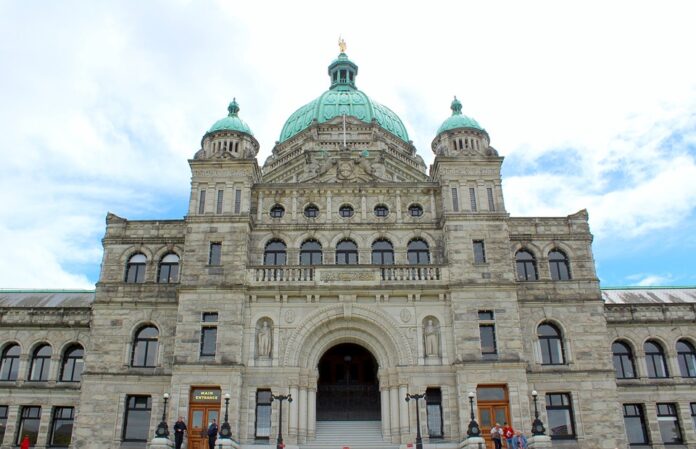Columbia River-Revelstoke MLA Scott McInnis says he is disappointed by the B.C. government’s passing of Bills 14 and 15, despite widespread opposition.
The BC NDP invoked closure on the bills, which means they were pushed through to a vote, regardless of where the discussions were.
“For Bills 14 and 15 (both of which I participated in directly asking questions during debates), we weren’t halfway through discussing the details. I have been sounding the alarm on this proposed legislation,” said McInnis.
“An authoritarian move, for authoritarian legislation. This is by no means my opinion alone.”
Bill 14, the Renewable Energy Projects (Streamlined Permitting) Act, allows the province to speed up renewable energy projects, while Bill 15, the Infrastructure Projects Act, gives the BC government power to fast-track approval for projects deemed provincially significant.
McInnis says his party cannot back Bills 14 and 15, despite the BC Conservatives typically in favour of resource development.
“Generally speaking, we support expediting major infrastructure and resource projects across British Columbia, but this bill fails to address several concerns around eliminating all red tape for all projects and proper consultation with First Nations,” said McInnis.
“They’re allowing the Premier and the cabinet to hand-pick projects at their sole discretion that they see as provincially significant. That’s not how this is supposed to work.”
While the Conservatives are supporters of more development and fewer regulations, McInnis feels Bills 14 and 15 will sidestep important aspects of project approval.
“The problem is, you can’t rush the very serious process of drafting law that provides fairness and clarity, no matter what government is in power,” said McInnis.
“Furthermore, let’s remove more red tape to further encourage competitive bids on major projects in all sectors of our economy, not just a few favourites hand-picked by the government.”
The bills have received widespread opposition, ranging from environmental organizations, the Union of BC Indian Chiefs, the Union of BC Municipalities, the BC Conservative Party and the BC Green Party.
“When we’re talking about spending billions of dollars in taxpayer money, we need to get local governments, First Nations and opposition involved in the conversation,” said McInnis.
“Bill 15 eliminates that process altogether.”
McInnis says the Conservatives and Greens both pointed out several significant concerns with both bills during debates.
“Agricultural land within the ALR can be severed and divided in the name of clean energy projects; only a specific number of projects chosen by the government will be able to bypass Environmental Assessments. Everyone else will have to wait for long permitting times, creating an unbalanced playing field,” said McInnis regarding Bill 14.
“Cutting swaths of land for power generation lines will be done on First Nations’ land. They have not been consulted properly in the process; grazing land, guide outfitting territory, and private property will have no guardrails in place to stop encroachment adjacent to this land for clean energy projects.”
Bill 15 also received criticism from both parties.
“There are no mechanisms in place to ensure a balance between urban and rural projects of ‘provincial significance ‘; the Minister [of Infrastructure Bowinn Ma] admits failures in their own consultation frameworks with First Nations because she thought ‘interest would be low,'” said McInnis.
“Former NDP executives and staff members who are now very powerful lobbyists will have a strong insider voice in ensuring their projects of interest get moved to the front of the line. This admission was put on the record in debate.”
McInnis says the Conservatives and Greens worked together on several amendments to the bills, but this did not pay off.
“I genuinely enjoyed working collaboratively with both Green MLA’s on finding constructive ways to modify the legislation. All amendments were voted down by the NDP,” said McInnis.
Both bills were made to be confidence votes, meaning a failure to pass the Legislature would trigger an election.
The vote narrowly passed with a count of 47-46, as the Speaker of the House, Raj Chouhan, must vote in the instance of a tied ballot.
“[May 29] was not a good day for democracy in B.C. This government will be ramming through half-baked projects with very little oversight,” said McInnis.
“I will continue to advocate for our communities, but also for good governance practices moving forward.”
Be the first to know! Don’t miss out on breaking news and daily updates in your area. Sign up to MyEastKootenayNow News Alerts.




